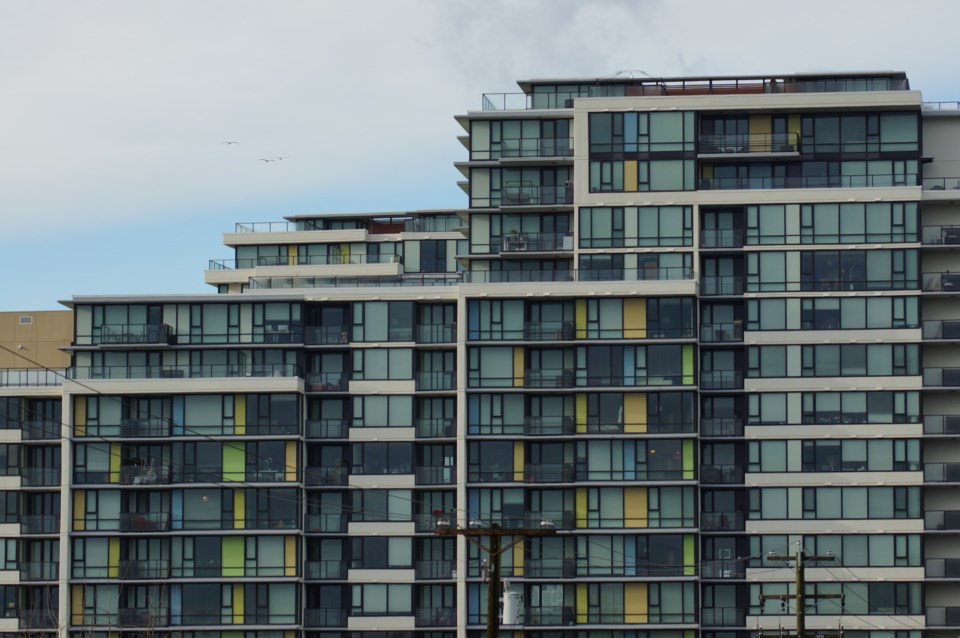While non-residents and foreigners account for just under five per cent of all home owners in Metro Vancouver, they are more frequent in Richmond and snapping up newly-constructed homes — particularly condos — at a much greater rate.
Data released Tuesday by Statistics Canada and the Canada Mortgage and Housing Corporation show non-residents owned 4.8 per cent of residential properties, from Lions Bay to Langley and Maple Ridge and all points between. In Richmond, the rate is 7.5 per cent while in Vancouver it is 7.6 per cent, the highest rate in a Canadian city.
Of the 70,503 units in Richmond, 5,265 are owned by non-residents, thus accounting for $4.86 billion worth of property (6.7 per cent of total land value).
“That is a substantial number, especially because we know this is a conservative estimate” of foreign money in real estate, said Josh Gordon, assistant professor in public policy at Simon Fraser University.
Furthermore, in Richmond, non-residents purchased nearly one in five (19.4 per cent) new homes, built in 2016 and 2017.
Nearly one in every four condo towers that have gone up in the past two years is wholly owned by non-residents, as they account for 23.7 per cent of new condo purchases.
Gordon said more stock should be given to recent purchases as opposed to overall numbers.
“You need to understand their share of the present market. If 24 per cent of the new-build (condo) market is offshore ownership, that is massive and will have a big impact on housing prices,” he said.
Stats show that the older the home the less likely it is to be owned by a non-resident.
While in Vancouver, non-residents owned properties that were higher in value compared to locals, in Richmond the opposite was true. The average value of a non-resident dwelling was $923,000 compared to local titles valuing just over $1 million.
Non-residents own 4.9 per cent of all detached homes. However, they prefer newer homes, as close to one in nine (11.8 per cent) homes demolished and rebuilt, since 2011, are sold offshore.
Statistics Canada notes the term “non-resident” is often expressed as a “foreigner.” But a non-resident may nevertheless be a Canadian citizen who lives outside the country and who doesn’t pay taxes. For instance, there are an estimated 300,000 Canadians living in Hong Kong. The data also does not include non-residents who are beneficial owners and who park money in home purchases via family, friends and business partners who are residents.
“The issue with the data is it is measuring foreign homeownership on the basis of where a person’s primary residence is and not on the basis of where the money’s coming from,” said Gordon.
As such, reaction was mixed to the data.
Richmond realtor and real estate blogger Steve Saretsky also noted the lines may be blurred as to who is and isn’t a resident.
“I have witnessed on the ground many ‘foreign buyers’ are not actually ‘foreign;’ they own Canadian passports,” he wrote on VanCityCondoGuide.com.
He said there are many questions stemming from this latest release of data.
“This is why the debate has begun to focus on where are they earning their income and are they paying their fair share. And what will be considered ‘fair share.’ This is a political hot potato that involves potential changes to immigration policies and tax laws.
Gordon said non-resident and foreign purchases need to be discouraged via policies. He and other economists suggest an annual property surtax where residents get offsets from income taxes paid and there are exemptions for seniors.
Meanwhile, Juwai.com, a Chinese real estate marketing firm, was reported by Global News saying that the overall impact of foreign buyers on Vancouver’s housing market is not significant, and claiming low interest rates and access to cheap money is the most significant factor.
Gordon notes those factors, unlike foreign buyers in Vancouver and Toronto, exist in every other Canadian market.



